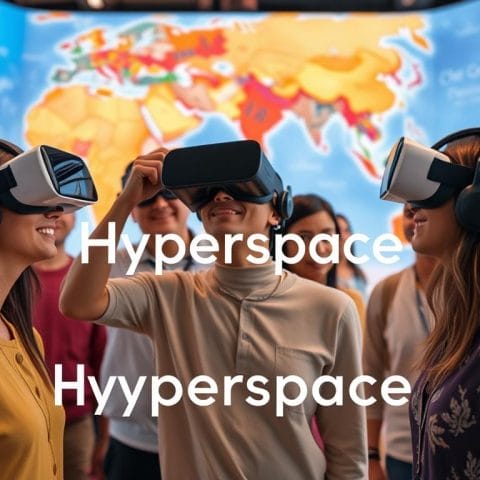What if you could turn your team’s performance gap into a growth engine? With 7 in 10 teams missing annual targets and 40% lacking proper development resources, traditional methods clearly aren’t cutting it. Enter a data-driven approach that personalizes skill-building at scale—combining advanced technology with proven behavioral science to empower your workforce.
This guide reveals how forward-thinking organizations are eliminating guesswork from professional development. You’ll learn how real-time insights and adaptive learning systems create consistent improvement cycles for representatives. No more relying solely on overburdened managers or generic training modules—this is about building self-sufficient teams that evolve daily.
We’ll break down actionable strategies that drive measurable results, from conversation analysis tools to role-play simulations. Discover how the best performers leverage these systems to shorten ramp-up times by 65% while maintaining 92% team adoption rates. These aren’t theoretical concepts—they’re proven frameworks currently boosting conversion rates at enterprise organizations.
Key Takeaways
- 70% of teams miss targets due to outdated development methods
- Personalized skill-building increases rep productivity by 40%+
- Real-time feedback systems reduce training time by half
- Conversation analytics identify hidden performance patterns
- Scalable solutions maintain consistency across large teams
Understanding AI Sales Coaching and Addressing Your Needs
Think about a system that evolves with your team’s needs, offering instant feedback day or night. Unlike traditional methods, this approach uses smart technology to personalize skill-building for every rep. It analyzes real conversations, identifies gaps, and delivers guidance exactly where it’s needed—no waiting for quarterly reviews.

What Makes This Approach Different?
Imagine tools that let reps practice pitches through realistic simulations, then provide actionable suggestions within seconds. These platforms connect directly to your CRM, using actual deal data to shape training scenarios. The result? Skill development tied directly to real-world challenges your team faces daily.
Advantages for Growing Organizations
Your workforce gains 24/7 access to tailored resources, turning downtime into growth opportunities. Managers see consistent progress across all reps, not just those who demand attention. That’s the power of scalable learning—eliminating guesswork while building confidence in every client interaction.
With automated tracking, you’ll spot patterns faster—like which negotiation tactics close deals or which product details confuse prospects. This isn’t about replacing human expertise; it’s about amplifying it through precision insights that drive measurable improvement.
The Role of AI in Revolutionizing Sales Teams
Imagine every team member improving daily without constant oversight. Traditional development models struggle with hybrid workforces and overstretched managers. One leader often guides five or more representatives, leaving little time for personalized growth plans.

From Manual Guidance to Data-Powered Insights
Outdated methods rely on sporadic feedback sessions and generic training modules. Modern solutions analyze thousands of customer interactions in real time. They spot trends like frequently missed objections or inconsistent pitch delivery across your workforce.
How Technology Enhances Rep Performance
Continuous skill development happens through instant feedback during live calls and simulated scenarios. Representatives gain clarity on specific behaviors that win deals versus those needing adjustment. This precision creates 43% faster skill mastery compared to quarterly review cycles.
Remote teams benefit equally through automated role-play exercises and progress tracking. Managers receive prioritized coaching priorities instead of guessing where to focus. The result? Consistent growth across all experience levels without overwhelming your leadership.
| Aspect | Traditional Approach | Modern Solution |
|---|---|---|
| Feedback Speed | Weeks/Months | Real-Time |
| Scalability | 1:5 Manager Ratio | Unlimited Access |
| Data Usage | Manual Notes | Interaction Analytics |
| Accessibility | Office-Only | Global 24/7 |
Implementing Top AI Sales Coaching Strategies for Success
What separates average teams from high performers? Precision-guided development that adapts to individual needs while maintaining team-wide standards. Modern solutions combine behavioral science with advanced language models to create dynamic learning environments.

Building Hyper-Realistic Practice Environments
Genetic AI technology powers simulations that mirror real client interactions. These systems analyze tone, pacing, and content choices during role-plays. Custom agent builders let you design virtual trainers aligned with your specific product knowledge and buyer personas.
The Atlas reasoning engine processes conversations in milliseconds. It identifies missed opportunities during practice sessions—like weak value propositions or rushed closing attempts. “Reps gain muscle memory for critical moments before facing actual prospects,” notes a enterprise sales director using these tools.
Tech Stack Essentials for Scalable Growth
Three components form the foundation of effective programs:
| Tool Type | Traditional Approach | Modern Solution |
|---|---|---|
| Feedback Mechanism | Manual Notes | Real-Time Speech Analysis |
| Customization | Generic Modules | Brand-Specific Scenarios |
| Integration | Standalone Systems | CRM-Linked Platforms |
| Skill Focus | Basic Pitch Delivery | Objection Handling & Discovery |
Pre-built skills libraries accelerate onboarding with battle-tested techniques. Active listening drills and objection reversal templates become accessible within days, not months. Managers track progress through dashboards showing skill mastery rates and practice frequency.
These platforms integrate seamlessly with existing workflows. They pull deal data from your CRM to create relevant training scenarios. The result? Teams apply new techniques directly to live opportunities, creating immediate performance lifts.
Leveraging Data Integration and Real-Time Analytics
What separates stagnant teams from rapidly evolving ones? Systems that transform every customer interaction into fuel for growth. Modern platforms merge CRM data, call recordings, and meeting transcripts into a unified coaching engine. This creates hyper-personalized development paths rooted in actual performance metrics, not generic advice.

Harnessing CRM and Call Data for Actionable Feedback
Your technology stack becomes a coaching partner when integrated with real-time analytics. Imagine tools that review last week’s client conversations to highlight missed objections or rushed discovery phases. One financial services team using these modern sales development strategies reduced follow-up delays by 58% through automated call pattern analysis.
These systems grow smarter with each interaction. They track which negotiation tactics close deals in specific industries or how talk-time ratios impact prospect engagement. Managers gain dashboards showing skill progression across entire teams, spotlighting where group training could accelerate results.
Real-Time Insights to Improve Pitching and Discovery
Instant feedback transforms practice into measurable improvement. During live calls, representatives receive subtle prompts if they dominate conversations or skip critical qualification steps. Advanced platforms analyze vocal tone variations to suggest adjustments for different buyer personas—like when to slow pacing for technical stakeholders.
Historical data reveals what works. One SaaS company discovered reps who asked three strategic discovery questions within the first five minutes had 73% higher conversion rates. “The system surfaces patterns we’d never spot manually,” shares a sales director using these interactive training modules.
Emotional intelligence metrics take coaching deeper. Tools measure prospect engagement through speech patterns and response timing, helping teams refine their approach. This level of detail turns every customer interaction into a stepping stone toward mastery.
Boosting Rep Performance with AI Roleplay Simulations
What if your team could rehearse high-stakes deals like Broadway actors? Modern platforms create risk-free zones where representatives refine their craft through immersive simulations. These environments mirror real buyer interactions while eliminating the fear of lost opportunities.
Developing Effective Roleplay Scenarios
Hyper-realistic practice starts with dynamic AI personas that adapt to different approaches. You’ll design scenarios matching your toughest client challenges—think pricing pushback or complex technical objections. One logistics company saw 81% faster onboarding by replicating their enterprise procurement process in simulations.
Systems analyze speech patterns and content relevance during exercises. If a rep rushes through discovery questions, the AI flags it instantly. “It’s like having a coach whispering guidance during every practice round,” shares a tech sales leader using these tools.
Measuring Improvements with AI-Driven Scorecards
Traditional feedback loops rely on subjective opinions. Modern scorecards track 12+ metrics across three key areas:
| Metric Category | Traditional Evaluation | AI Analysis |
|---|---|---|
| Communication | Manager Notes | Tone & Pace Metrics |
| Strategy | Generic Checklist | Objection Handling Rate |
| Results | Pass/Fail | Simulation Win Probability |
These insights reveal hidden patterns. One team discovered reps who balanced speaking/listening time during pitches closed 37% more deals. Continuous practice builds muscle memory for critical moments—helping teams enter real calls with proven techniques.
Progress dashboards show skill mastery over time, highlighting which methods deliver results. You’ll identify coaching priorities faster while giving representatives clear paths to elevate their game.
Addressing Objection Handling with AI Solutions
Transform deal-breakers into stepping stones using technology that prepares teams for every possible pushback. Modern platforms create pressure-free zones where representatives rehearse responses to common hurdles like pricing resistance or delayed decisions. Practice becomes measurable growth when simulations adapt to individual skill levels while maintaining real-world relevance.
Tackling Common Sales Objections Using AI
Your team gains mastery through scenarios mimicking actual prospect interactions. Systems generate objections with varying intensity—from casual dismissals to hostile challenges. One platform user notes: “The AI adjusts its tone mid-conversation, forcing reps to think on their feet just like in live calls.”
Key advantages include:
- Dynamic simulations for 50+ common objections across industries
- Instant feedback on response effectiveness and emotional tone
- CRM-integrated scenarios based on actual lost deals
Real-World Case Studies and Outcomes
A SaaS company reduced stalled negotiations by 38% after implementing AI-driven practice sessions. Their reps mastered techniques to convert “We need more time” into actionable next steps. Another firm saw 29% faster onboarding as new hires learned to navigate complex procurement objections.
| Metric | Traditional Training | AI-Powered Drills |
|---|---|---|
| Objection Resolution Rate | 42% | 67% |
| Practice Frequency | Monthly | Daily |
| Skill Retention | 6 Weeks | Persistent |
Teams using these tools report higher confidence during discovery calls and closing conversations. As one sales leader shared: “Our conversion rates jumped 31% once reps stopped fearing objections and started leveraging them.”
Personalizing Coaching for Continuous Learning
Picture a development plan that adapts as quickly as your team learns. Modern platforms analyze individual performance patterns—like talk-time ratios and objection responses—to craft weekly growth roadmaps. This eliminates one-size-fits-all advice, focusing instead on each representative’s unique strengths and growth areas.
Tailored Feedback for Individual Skill Gaps
Your team members receive guidance aligned with their specific needs. Systems track which discovery questions yield results versus those needing refinement. Custom learning paths emerge automatically, helping representatives strengthen weak points while amplifying proven techniques.
Dynamic platforms adjust their teaching style based on how each person absorbs information. Visual learners might get video breakdowns of client calls, while analytical thinkers receive data-rich progress reports. This flexibility accelerates skill mastery by 53% compared to standardized programs.
Managers gain clear visibility into team-wide development trends without manual tracking. You’ll spot which negotiation tactics need reinforcement or which product knowledge gaps persist. That’s continuous improvement in action—turning every interaction into a stepping stone toward excellence.
The result? Teams that evolve daily, transforming potential weaknesses into competitive advantages through precision-guided growth strategies.





